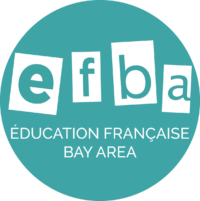EFBA obtained the STAFE grant, a special type of grant for nonprofits serving French people abroad. It has allowed us to develop our own educational materials and resources.
Thanks to this grant, these materials are made accessible to all and available for free from the EFBA website.
Gabrielle Durana, Founder and Executive Director of EFBA, and Nadia Bodin, EFBA teacher and Director of the “Virgule” Collection, explain the grant mechanism and the origins and content of EFBA’s educational materials.


What is the STAFE grant and what are the eligibility criteria?

STAFE is a new grant for French nonprofits abroad that has filled the void left by the disappearance of the “parliamentary reserve”. Before 2016, there used to be discretionary funds (136,000 euros per year) that each French National Assembly Representative or Senator could bestow upon non-profits in his or her district. This system was strongly critisized because it gave rise to abuses: pork barrel appropriations and the lack of transparency were the main issues. On the other hand, it was a short decision making process: you just had to convince one person: the Congressperson (… or his / her aide!). Our non-profit did benefit from the parliamentary reserve during several years, which funded the launch of our French summer camps in 2012, for example. The Virgule textbook project was also funded through the parliamentary reserve for the first two years. I took a “bipartisan” approach, and went to see each Congressperson serving as representative to the French population living abroad, and I asked for their contributions, irrespective of their political preference. Nonprofits like ours, all FLAM (French as Mother Tongue) programs throughout the world, need quality educational tools to fulfill our mission, so I saw it as tax-payers’ crowdsourcing! All political parties, including the Green party, agreed to participate in financing this global-level project. In all, we managed to raise around 40,000 euros a year. This allowed us to fund the development of this method of teaching French, and making it available completely for free, and downloadable online.
The disappearance of the parliamentary reserve in 2016 almost killed the free Virgule textbooks project. We did not want to let go of the free publication model because it is key to giving access to knowledge through world wide diffusion, in particular in Africa. We self-funded the third year of the project from our “rainy day fund”, but we could not have kept doing so. The project would have stopped and remained unfinished.
Fortunately, the STAFE grant was created in 2018! In the new system, it is the local representatives of the French population living abroad, aka “Conseillers consulaires”, who give their opinion on the projects to be funded. The amount is lower (20,000 euros maximum) than in the former parliamentary reserve, but the procedure is transparent and a non-profit such as ours may receive support several years in a row. It’s not super practical that the grant has to be reapplied for every year even though this is a multi-year project, but we will have to work with that.
How did you hear about it?

The end of the “parliamentary reserve” had caused much anxiety among French nonprofits serving the French abroad. Last year, the French authorities announced the creation of the STAFE new system. We received an email from the embassy telling us how to apply. The turnaround time was very short. We had to be very responsive.
What is the process to obtain it?

There is a call for projects within the district of each French consulate. The number of projects is proportional to the population registered in that particular district, on the official registry of French citizens living abroad. For example, in Northern California, we are eligible for 10 fundable projects per year because we have 30,000 French citizens registered at the San Francisco consulate. But as we are just at the population threshold, if the number of French registered at the San Francisco Consulate drops below 30,000, we will lose four fundable slots and only have six eligible projects in the future. (Note to the public: if you are a French citizen living abroad, do register onto the registry of French citizens living abroad. Thus you will help your local French nonprofits to be eligible for more funding. The local French consulate will also receive more means, human and otherwise, to serve you. And you will be able to vote in the French elections!)
In practical terms, STAFE funding must be applied for in February. It consists of a case for support, a description of the actual project, and the prospective budget. The grant cannot cover more than 50% of the total expenditures. It is the tax-payers’ money which goes toward helping those nonprofits that have already demonstrated their impact and sustainability, and the consulates and local representatives are very familiar with nonprofits in their districts. The nonprofits are notified at the end of September. Then, the nonprofit has to provide a report to justify how the funds were spent; which is to be expected, given that it is the tax-payers’ money.
This year the grant has been awarded again, where will the funds be allocated?

After having created textbooks from kindergarten through the end of grade school, teaching guides for the teachers (or single parents who want to teach at home, on weekends …), the draft of vacation exercise books, and audio tapes to make classes more interactive, (using all the accents of the French-speaking world), this year we are creating an educational game which is inspired by Trivial Pursuit and the “Incollables” (a type of flashcards popular in France). The game will contain all the concepts learned through the Virgule textbook method and will enable families to play with their children. We will have it manufactured so it will be a real game, sold at cost. Faithful to our “open source” philosophy, the game will also be freely available on our site and downloadable to be printed at home. We have more than 5000 downloads per month of our Virgule textbooks, we hope that the game will generate the same level of enthusiasm.
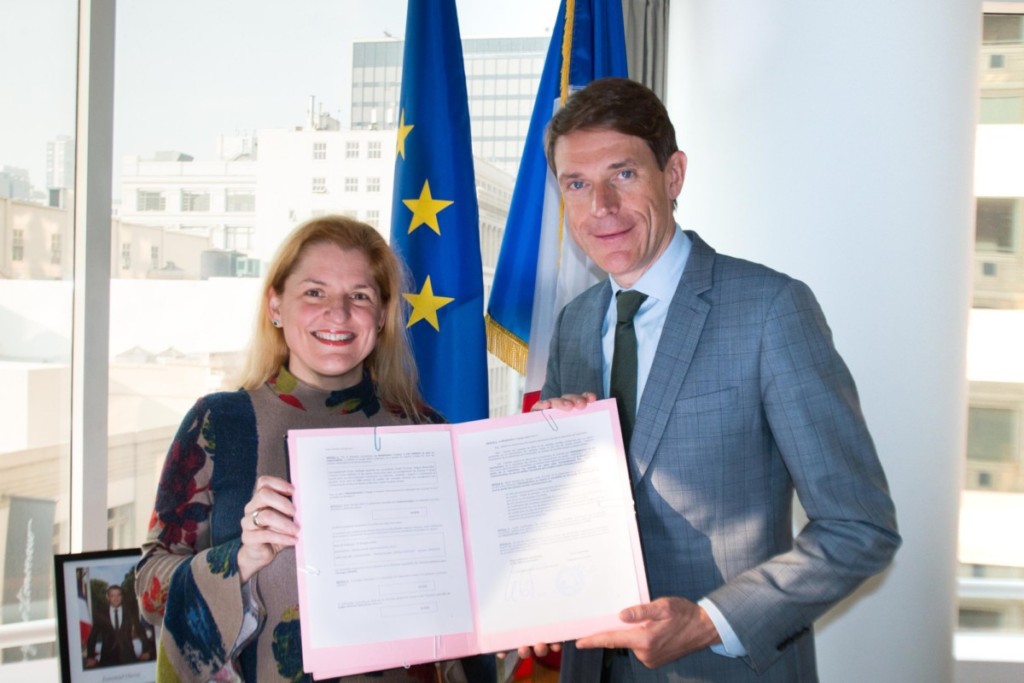
What are the Virgule textbooks?
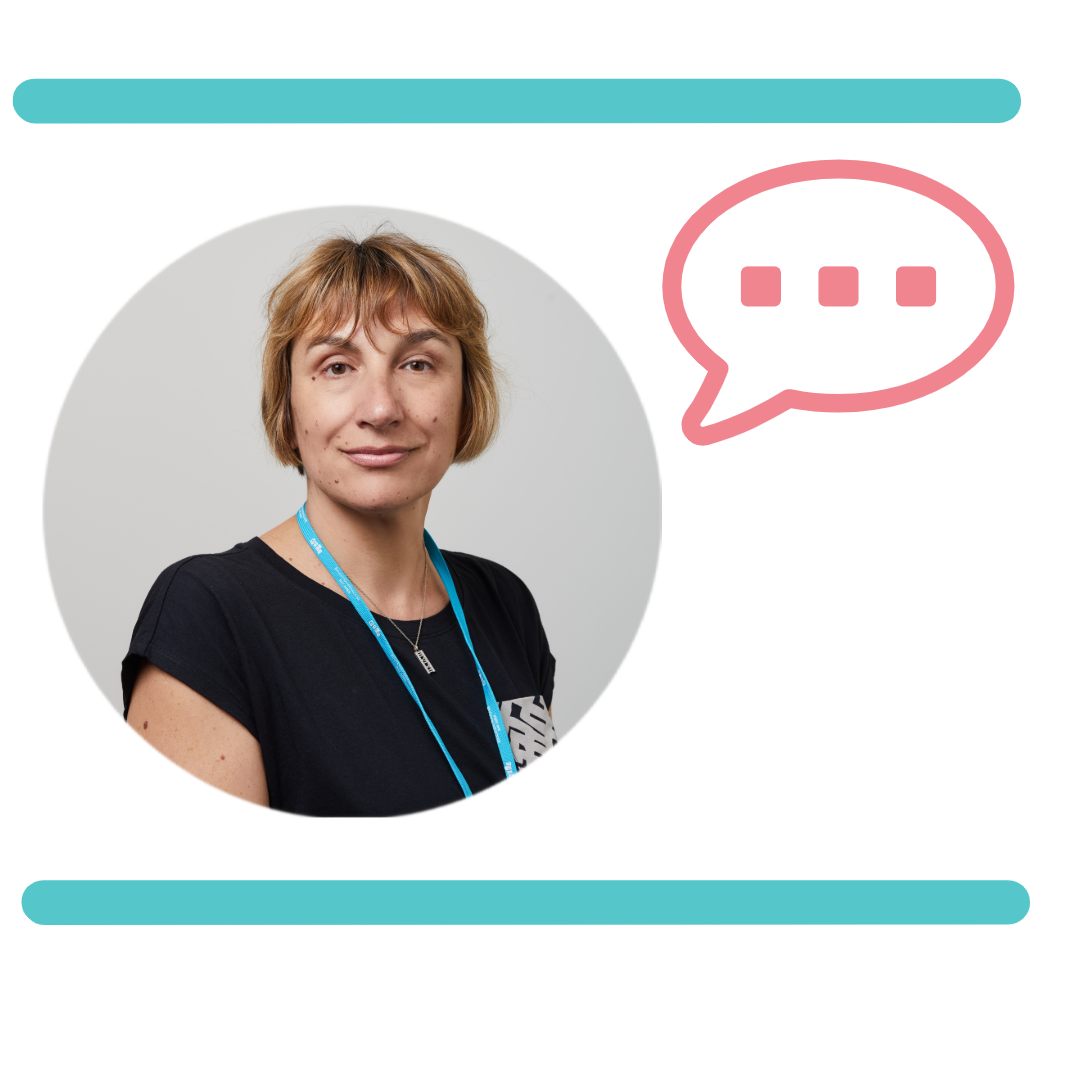
The Virgule activity books are the educational materials for EFBA’s after school program for children in the native speaker track, aged 5 to 11 years old.
To best meet the needs of students and their progress, the textbooks are organized by age group:
- “Les petits Francophones”: from 5 to 7 years old – PF1 (completely non-readers) and PF2 (readers in the majority language)
- “Les Moyens Francophones” : from 7 to 9 years old – MF1 and MF2
- “ Les Grands Francophones”: from 9 to 11 years old – GF1 and GF2
Each student, after having been assessed at the beginning of the school year, receives 2 activity books corresponding to his or her level.
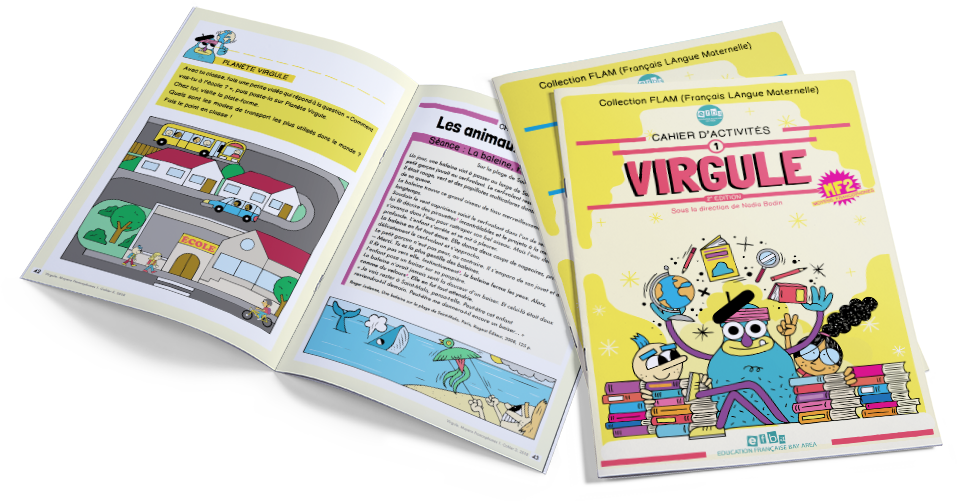
Each textbook is organized into four chapters, each presenting a theme in accordance with the lesson plan. The entire collection is based on the levels of the Common European Framework of Reference for Languages (CEFR) and structures the learning of languages by objectives and tasks. Each chapter is organized around the educational goals of mastering the language, spelling and grammar, and Francophonic cultural literacy, all in a play-based and collaborative approach. Each chapter offers different ways to learn, use, discover, play and exchange.
Additional resources are available for each level:
- The teaching guide for the teacher, which presents the implementation and the lesson plan for each session in detail. It specifies the detailed objectives, proposes the academic approach, the activities and their set up by specifying the different interactions, as well as the correction for each of the activities. It also offers complimentary cultural information and many multimedia resources for the teacher who would like to deepen or vary the media.
- The MP3 digital resources combined with the listening activities proposed in the textbooks make it possible to work on listening comprehension. . . An interactive platform “Planète Virgule” allows students to meet other children from all around the world in a play based and digital approach enabling them to interact with each other, all of this in a very safe cyber-environment.

Where does the idea for the textbooks come from?

Since EFBA’s creation, teachers had had difficulties finding educational materials to teach French as a mother tongue on a part-time basis. Each teacher developed his/her own material while abiding by the lesson plan. At Gabrielle Durana’s initiative, EFBA decided in 2014 to create its own teaching method by capitalizing on the experience of its teachers. The Virgule textbooks are therefore the result of the long, creative and self-demanding work of a competent and passionate team of more than 25 teachers / authors.
Why Virgule? What is the story of this character?

The character of Virgule was created by the graphic illustrator Philippe Derik (www.derik.fr) who is responsible for the visual identity of the Virgule textbooks since their creation. We had looked for rich and complex characters so that the children would be attached to them and would want to open their French textbook. I am a fan of Casimir and Hippolyte in “Children’s Island”. The “Village in the Clouds” and ” Sesame Street” also had nice monsters, who were the children’s friends. We have imagined multicultural humans as well as affectionate, funny and intelligent “monsters”.


What kinds of activities are proposed?

EFBA prepares students to pass DELF exams (Diplôme d’Études en Langue Française – a diploma of studies in French language). The Virgule textbooks therefore propose to develop the four competencies assessed with listening activities (listening comprehension), reading activities (reading comprehension), writing activities (written production) and finally oral presentation or discussion activities. (oral production).
What are the benefits for children and families?

The children like to follow the adventures of Virgule, Mona and Rémi over the textbooks; they are happy to find a new playful educational book which they are comfortable with at the beginning of each year. They are therefore more willing to discover the new adventures of the heroes throughout the chapters. The textbooks are also of benefit for parents because they offer a progression in the programs and are available online on the EFBA website. Next year, parents will also be able to play with their children at “Virgule super héros”, an educational game allowing children to put into practice the knowledge they have acquired in class from the Virgule textbooks in a playful, social, collaborative and non-academic context.
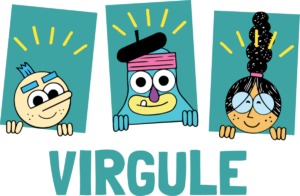
How much does it cost to create and publish these books?

We wanted to call on professionals to develop the textbooks. Since its origin the project has cost more than 200,000 euros. Half comes from the efforts of the French taxpayers via the parliamentary reserve and STAFE. The difference was financed by our own funds and donations we received. It is as if we are developing a vaccine against monolingualism. We want it to benefit humankind and we do not want to monetize it. So we must find another business model, in which the beneficiaries, children, obviously cannot pay. Thus, we had to fund the project in a different way: we invented a private-public partnership. Financially, it’s pretty acrobatic but nonprofits are full of stories of small and great miracles performed by a small but super motivated group!
Why did you choose to publish them in open source?

EFBA’s mission is to facilitate access to French education across the globe. Our non-profit has therefore chosen to create this educational material under a Creative Commons license, in an open source format, to promote its free access to all FLAM (Français Langue Maternelle – french mother tongue) nonprofits and to isolated French-speaking families around the world. The entirety of the materials (Student’s books, teaching guides, digital resources) are available for free!
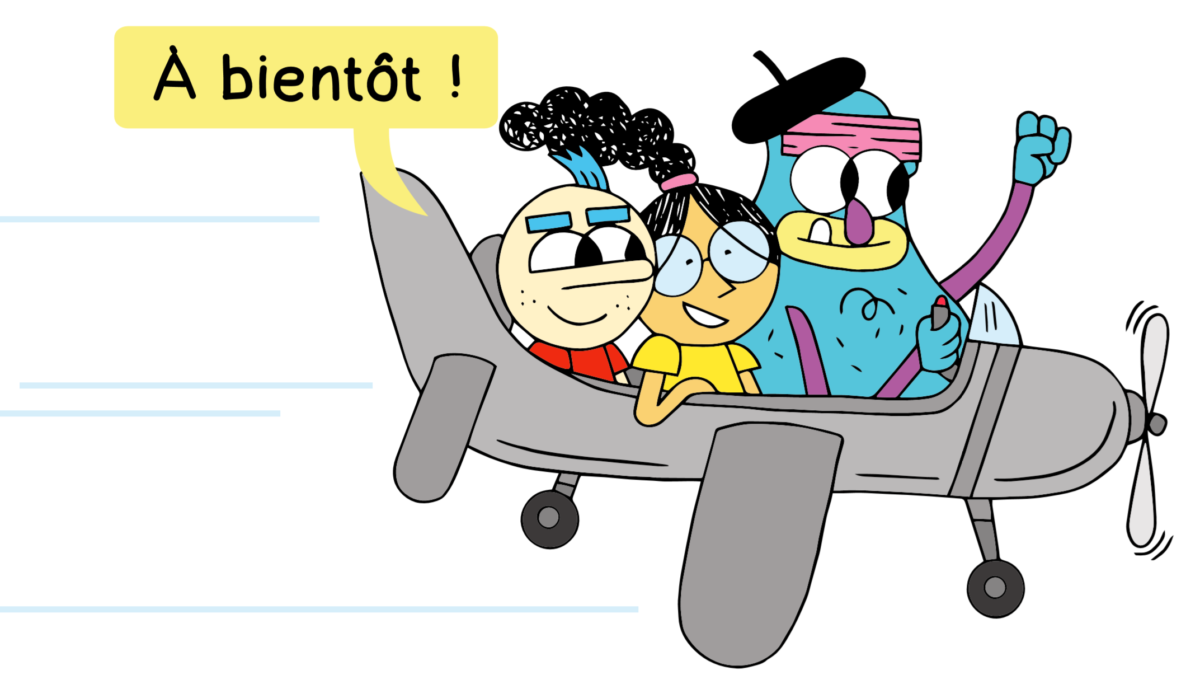
[/fsn_text][/fsn_column][/fsn_row]
